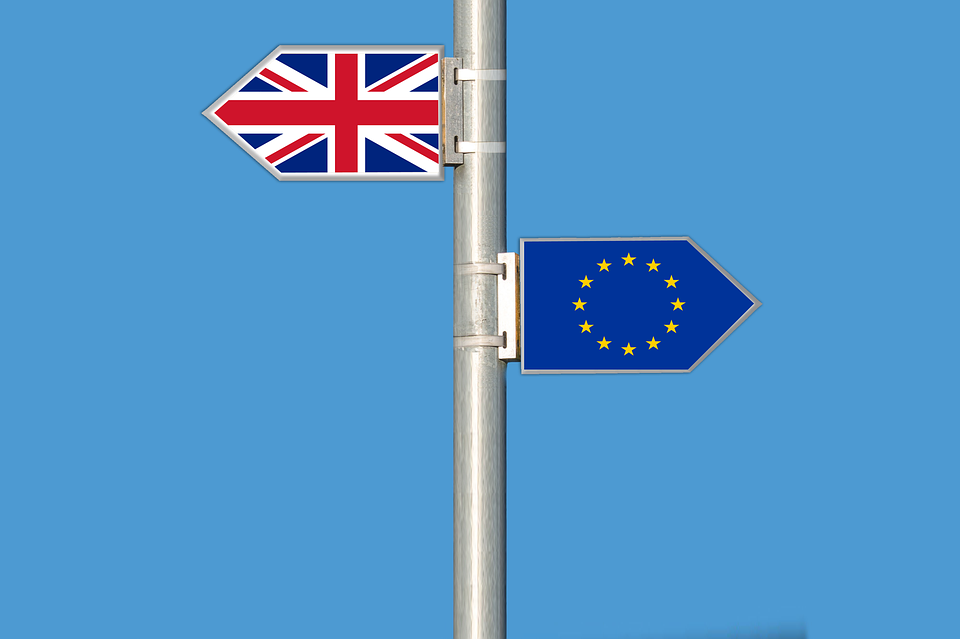Brexit is the great big British nightmare of the past two years that we can’t seem to be able to wake up from. The ongoing nightmare has been an endless question mark for the entire world. What is more terrifying is that fact that even in the end game of Brexit, when we are still unsure what the British are planning on. They just asked for another extension and the parliament is stubbornly saying a resounding “No” to everything. This climate has had a strong effect on the world, but most of all, it has had an interesting effect on the startups and new business of England.
The big and old are in no hurry to leave
It seems that the biggest companies, financial or otherwise, are in no hurry to get out of Britain. Over the past few years, barely any of the office jobs associated with the big financial companies have moved to the EU. While the companies are still keeping an eye out for the jobs, it seems that they are hoping for something. After all, the outlook on Brexit has been more and more leaning towards people believing it might not happen at all. The latestpredictions made by the bigger players in the financial fields only shows that more and more companies are expecting a more favorable outcome for the business.
So there is no surprise when we find out that the companies are in no hurry to move to the EU. Some of them are taking their chances, hoping that the people and the parliament might change their mind about what is best for Britain. So this leaves them being comfortable where they are, not risking any of the capital they have dedicated to moving, thinking it might be a gamble. This might be good, for now, but there are dangers associated with this. The biggest danger being how much harder and more expensive it will be for these companies to move, once Brexit does happen. In the worst case scenario, it might take them a long time to deal with the fall out of not taking the prudent step and prepping new offices in the EU.
Unfortunately, big companies are not the ones who decide whether Brexit is happening or not. It is the parliament. The sentiment among the smaller scale businesses and potential business owners is that there is a possibility that Brexit might actually happen.
The rate of new business, slowing down
The sentiment is reflected in the simple fact that there are fewer new businesses being founded in the UK then there was last year. The trend over the past few years has been that of growth. More and more startups and new businesses have been founded in the optimistic context of Britain as it has been up to now. Even in 2017, a year after Brexit, the rate of new companies that were being founded was growing. The optimism of the people and the momentum of those who wanted to found new businesses seemed unstoppable at the time. The government took this as a vote of confidence from their people.
Though now, it seems the lack of confidence is finally having the effect that it should have had initially. The number of new businesses being founded in the UK fell, even if by a small amount, for the first time in years. The people who would be founding companies are instead choosing to go the safer route of finding employment with a private company. There are no specific studies currently, but this is an attitude that goes hand in hand with a lack of faith in the future of the economy. The people are saving the money they would be spending on new business because they are expecting to be needing these savings in order to survive in the short and mid-term.
Employment in the private sector has grown, as a result. Some may even believe this to be a positive sign, as the spending of the private sector increases. But this is positive only as so far as the ability of the people to save goes. The people being employed are the people who, in a more optimistic setting, would be spending their resources on starting new projects and businesses, and this is harmful to the economy. The simplest way to think about this is this – private investment has fallen in the UK over 2018. The rate of the fall has also been the most dramatic since the 2003 recession.
This goes to show: while big companies might be paying more money to their employees, there is less money going around in investing in private business. So, even if people are working and companies continue to hire, the country is spending less and it is getting less of a benefit out of its highly educated, highly skilled human capital. The problem lies with the fact that people don’t know what is going to happen. There has been little to no framework created over the past two years, and now, as the deadline approaches and the parliament is having trouble deciding what to do, the people have lost faith.
Lack of faith, lack of business
A safe economy is what leads to investment, especially risky investment. When a society is more or less confident of the future of its county, it is more likely to take risks. Creating a startup and founding a business usually, entail huge risks. There is the risk of losing all of the money you invest in building the startup, and the risk of never getting the clients you need to run the startup. There is the risk of being unable to find employees, as they consider startups to be less safe options in an unfavorable economy. And Britain looks more confused right now than it ever has before.
What is the result? All of this is going to cost the UK economy a lot of money. As large businesses refuse to prepare for the move and new businesses stall in creation, the economy is slowing down. If the no deal Brexit does happen it will be catastrophic for the country. The idea is simple – the day large businesses start letting people go, there will be no space for employment to shift, so the rate of unemployment will rise, dramatically. Savings will have to be dipped int and spending will decrease. Without new businesses to high skills workers, the unemployment rate will not recover for a while. In the end, Britain ends up with a highly skilled, unemployed workforce that is having trouble emigrating simply because Brexit has imposed restrictions on their travel. While some might call this speculation, there are indications that business has slowed down over the past year and that some of the worst predictions might be coming true. Let’s hope not.
Source: Finextra


